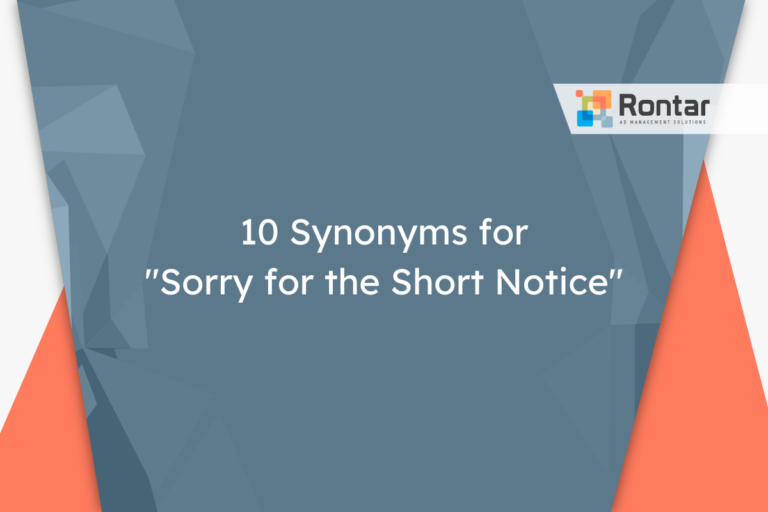10 Other Ways to Say “I Respect Your Decision”

In the workplace, it’s crucial to express respect for others’ decisions, especially in emails. Saying “I respect your decision” is a common way to do this, but there are many other phrases that can convey the same message.
This article lists 10 professional alternatives to this phrase, explaining how and when to use them. Each alternative is followed by a short email example to show how you can use the phrase in real-life workplace communication.
Is It Professional to Say “I Respect Your Decision”?
Saying “I respect your decision” is professional, formal or informal depending on the context, and it is always polite. It’s a versatile phrase that communicates acceptance of another’s viewpoint or choice without expressing agreement or disagreement.
It’s appropriate across a wide range of recipients, including managers, coworkers, clients, or any professional correspondents. Whether communicated through email, in person, or over the phone, it helps maintain a tone of professionalism and courtesy.
Email example:
Hi Stephanie,
Thank you for considering our proposal. I understand you’ve decided to move forward with a different plan, and I just want to say that I respect your decision. Please let us know if you have any other questions in the future or if there's anything else we can assist you with.
Best regards,
Michael
Pros:
- Shows understanding and professionalism.
- Keeps the conversation positive and respectful.
- Helps maintain good working relationships.
Cons:
- May be perceived as passive in situations where stronger feedback is needed.
- Could be seen as a lack of personal opinion or neutrality.
Someone might want to use an alternative phrase if they wish to offer more detailed feedback or if they are looking for a different way to express support without implying agreement.
10 Other Ways to Say “I Respect Your Decision”
Here are ten common synonyms that serve as great alternatives to the phrase “I Respect Your Decision” for use in a professional email:
- I understand your point of view.
- I accept your decision.
- Your decision has my support.
- I acknowledge your choice.
- I appreciate where you’re coming from.
- I hear what you’re saying.
- I’m behind your decision.
- Your perspective makes sense to me.
- I value your decision.
- We respect your direction on this.
1. I understand your point of view.
This alternative is similar to the original, highlighting understanding rather than mere acceptance. It’s slightly more personal and conveys empathy, showing that not only do you respect their decision, but you also make an effort to see things from their perspective.
This phrase works well in situations where the decision might have been difficult or controversial. It is suitable for discussions with colleagues or superiors, especially in emails or one-on-one conversations, where a degree of empathy is required.
Email example:
Dear Alex,
Thank you for sharing your thoughts on the project's direction. I understand your point of view and will make sure the team aligns with this new approach.
Best,
Samantha
2. I accept your decision.
This alternative communicates a more passive acceptance of the decision. It’s straightforward, professional, and shows that you are willing to go forward with their decision without objecting.
It’s particularly effective in formal settings where decisions are final and not open for debate. It can be used with managers, team leaders, and clients via email or in meetings where acknowledging a decision respectfully is crucial.
Example:
Dear Jordan,
After reviewing the proposed budget cuts, I accept your decision. We will adjust our planning to align with the new budget.
Kind regards,
Taylor
3. Your decision has my support.
This phrase emphasizes active support over mere acceptance, making it powerful in contexts where backing up a decision with action is necessary. It is professional and conveys a sense of teamwork and solidarity.
Best suited for use among team members or when communicating with a superior whose decision you want to endorse explicitly. It’s particularly impactful in emails and team meetings, showing that you’re not just on board with the decision but are actively supporting it.
Email sample:
Dear Casey,
Given the changes you’ve decided to implement, your decision has my support. I’m here to assist in any way to ensure smooth implementation.
Warm regards,
Drew
4. I acknowledge your choice.
This option signifies recognition of the decision without imparting a positive or negative judgment. It’s neutral and professional, ideal for situations where you might not entirely agree but still need to show respect for the decision made.
Useful in formal communication with superiors or colleagues, especially in emails where acknowledging a decision formally is required, but you wish to remain neutral.
Email example:
Dear Morgan,
I've received your instructions on the upcoming project shift. I acknowledge your choice and will inform the team accordingly.
Best wishes,
Jamie
5. I appreciate where you’re coming from.
This phrase not only respects the decision but also shows an effort to understand the reasoning behind it. It’s slightly more informal and personal, making it suitable for closer working relationships or when trying to maintain a positive tone in the conversation.
It fits well in emails and personal conversations with colleagues you have a friendly relationship with, especially when you want to express support and understanding for a decision that has personal implications.
Here’s an example:
Dear Riley,
Thank you for walking me through your reasoning on this matter. I appreciate where you’re coming from and will make sure our next steps reflect this discussion.
Regards,
Devon
6. I hear what you’re saying.
This synonym conveys attentiveness and understanding. It’s slightly informal, suggesting not just respect for the decision, but also active listening. It’s suitable for situations where you want to emphasize your engagement in the conversation.
This alternative is better suited for one-on-one meetings or emails with colleagues or clients where you’re discussing sensitive topics or complex decisions that require showing you’ve carefully considered their viewpoint.
Example:
Dear Bailey,
During our discussion earlier, I hear what you’re saying, and I agree that we should proceed as you suggested.
Cheers,
Jordan
7. I’m behind your decision.
This phrase offers a more proactive support stance, indicating not just respect but also willingness to support the decision actively. It’s professional, yet implies a level of enthusiasm about moving forward together.
Great for situations requiring team cohesion and morale boosting, especially in emails or team meetings where endorsing a decision publicly can help foster unity.
Email sample:
Dear Kim,
Following our meeting, I’m behind your decision on the new project launch strategy. Let’s discuss the next steps soon.
Sincerely,
Casey
8. Your perspective makes sense to me.
This alternative points to a rational understanding of the decision. It’s more personal and shows that you’ve considered their viewpoint thoroughly. It’s polite and emphasizes reasoning over emotion.
It’s well-suited for discussions with both peers and superiors, in emails or face-to-face, where you need to acknowledge the logical aspects of a decision or argument, especially in complex situations where decisions are heavily debated.
Email example:
Dear Finley,
After our extensive discussion, your perspective makes sense to me. I am ready to move forward with the proposed changes.
Best,
Harper
9. I value your decision.
This expression is a strong way to show respect for someone’s decision-making process. It’s professional and carries a sense of deep respect and appreciation for the decision and the person making it.
This phrase is ideal for emails and conversations where decisions made have significant implications, and you want to express your high regard for the decision-maker’s judgment, such as in formal decision announcements or in response to executive directives.
Here’s an example:
Dear Rowan,
Thank you for making a tough call on the project’s direction. I value your decision and am committed to following through.
Regards,
Jordan
10. We respect your direction on this.
This phrase emphasizes collective respect and is professional. It’s particularly effective when used by a team or department to show unified support for a higher-up’s decision. It conveys a sense of teamwork and collective responsibility.
Perfect for formal communications, such as emails from a team to a manager or leader, especially when a decision impacts the entire group and you want to show unified support or acceptance.
Email sample:
Dear Avery,
As a team, we respect your direction on this. We are ready to align our efforts with your decision and move forward together.
Warmly,
The Development Team
Final Thoughts
Choosing the right words to express respect for someone’s decision is key in maintaining professionalism at work. The alternatives we’ve discussed can help you communicate effectively and politely in various situations. By using these phrases, you’ll be better equipped to show understanding, support, and respect in your emails and conversations.






